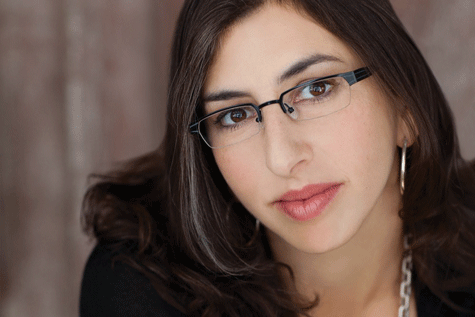by MAX SPARBER
Community News Editor
Rabbi Danya Ruttenberg, who will be Beth El’s scholar in residence Feb. 1 and 2, was recently named one of 50 Jews everyone should be following on Twitter by JTA. Ruttenberg, the article noted, “may have more viral tweets than any other Jewish spiritual leader. Her Twitter posts demonstrate her progressive politics and extensive knowledge of Jewish texts — and why, in her opinion, the latter frequently supports the former.”

Ruttenberg, who is the rabbi in residence at the poverty-fighting organization Avodah, has a robust Twitter presence that frequently focuses on social justice issues.
With the recent Supreme Court decision to uphold President Trump’s ban on transgender soldiers, Ruttenberg pointed followers to a long, detailed post about gender and Jewish texts. She described how Israel’s Supreme Rabbinical Court ruled on a transgender issue in 1998.
The rabbis had looked to rabbinic texts and noted that when the prophet Elijah had ascended to heaven, the rabbis declared that Elijah could no longer be considered a man anymore, and so his wife would be granted the right to remarry.
Ruttenberg wrote this about the court’s conclusion: “A change in gender status leads to a change in legal status … Therefore, trans folks who transition are the gender they transition into.” Ruttenberg also detailed how the Mishna identified between six and seven gender categories, as well as pointing out that, by a contemporary reading of rabbinic texts, “angels are canonically non-binary.”
Ruttenberg’s social media presence, as well as her deep dives into how Jewish ethnics apply to modern social issues, cause her to be a frequent guest in the mainstream media. A detailed discussion of the Jewish understanding of repentance and forgiveness caused an appearance on WNYC’s On the Media, where she discussed the subject in relation to the then-current Senate Judiciary Committee public hearings on Brett Kavanaugh, and why clearly defining repentance is essential in the era of MeToo.
It’s been an interesting path for Ruttenberg, who authored a book called Surprised by God: How I Learned to Stop Worrying and Love Religion, which detailed a not-especially-religious childhood, teenage atheism, years in California’s feminist punk world, and then a spiritual searching that began in her 20s and eventual led her to the rabbinate.
Ruttenberg still credits the influence of punk and feminist politics in her approach to Judaism — she’s one of the only rabbis to make an appearance in Michael Croland’s book Oy Oy Oy Gevalt! Jews and Punk.
Liz Rappaport, Well Program Coordinator, Life Cycle Events and Assistant to Rabbi Davis, explained that. The scholar in residence program is a regular program at Beth El, bringing in rabbis and other educators to discuss topics that will be of interest to the congregation and the larger Jewish community. Sometimes the scholars are chosen by Rabbis Davis and Olitzsky, sometimes families or congregants will have suggestions.
In the case of Ruttenberg, Rabbi Alexander Davis reached out to her directly. Familiar with both Rutterberg’s work in social justice and Jewish motherhood (Rutterberg is the author of a book called Nurture the Wow detailing her own experiences as a Jewish mother), the synagogue requested Rutterberg speak on both topics.
Ruttenberg will participate in a number of events at Beth El, including speaking on ” For You Were a Stranger: ICE, Immigration Policy and Jewish Texts, ” All the Way Up the Mountain: Finding Our Unique Role in Working for a Better World” and “What’s Jewish about Justice?”
For information visit besyn.org; those attending the Shabbat dinner with Ruttenberg are asked to RSVP.



















